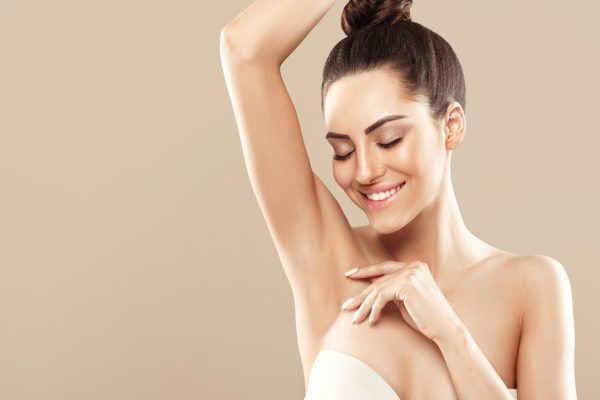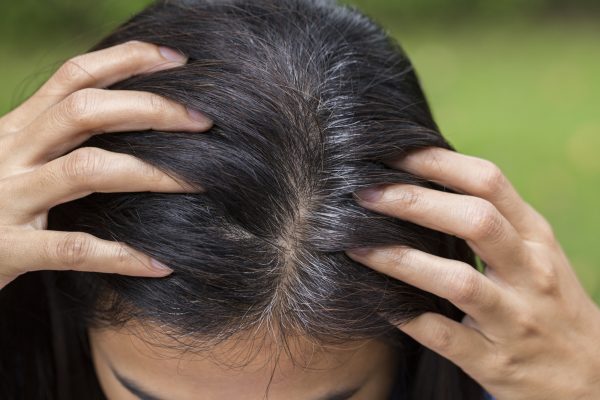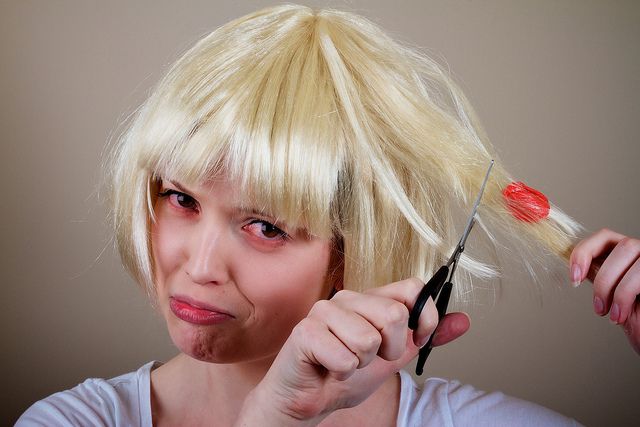You are what you eat when it comes to good hair health. After all, the scalp contains over 100,000 hair follicles that require the proper nutrients in the proper proportions to survive.
We already discussed vitamin deficiency as a cause of hair loss. So it stands to reason that we discuss the opposite side of the coin: vitamins for hair health. We’ll go through the vitamins you should include in your diet if you’re not currently.
Here Are The Best Hair Nutrients and Vitamins
Whether you have silky-smooth locks or bouncy, curly tresses, hair health can be subjective. Having said that, most of us would probably agree that healthy hair is devoid of frizz, split ends, and brittleness. But how do you go about doing so?
Spoiler alert: you don’t only need to invest in topical hair products. Your nutrition is another component that contributes to healthy hair. If you want your hair to look and feel its best, learn which vitamins (and other micronutrients) are known to be excellent for hair — and which ones require more scientific evidence to be proven to be hair-beneficial.
1. A vitamin
Vitamin A is one of the vital elements that everyone requires for strong, healthy hair growth.
If you’re looking for scientific evidence, mouse and rat models suggest that this antioxidant activates hair follicle stem cells. However, too much vitamin A has been related to hair loss, so don’t overdo it. Remember that moderation is essential.
2. B2 vitamin (Riboflavin)
Another hair vitamin worth noting is vitamin B2 (also known as riboflavin). Low levels of riboflavin are known to promote hair loss since this antioxidant is required for cell growth, fat metabolism, and energy generation.
For the record, vitamin B2 deficiency is seldom found as a single nutritional deficiency, but rather as part of a broader B vitamin shortage. It is advised to consume extra riboflavin-rich foods such as spinach and fatty fish (such as salmon and mackerel) or to take a B vitamin supplement containing vitamin B2.
3. B7 vitamin (Biotin)
Because a lack of vitamin B7 (biotin) has been related to hair loss, make sure you obtain enough of this element in your diet. According to a 2017 comprehensive study published in the Journal of Skin Appendage Disorders, supplementing with biotin may aid with poor hair development and brittle nails.
Nonetheless, the research included only 18 case reports that were primarily focused on persons with biotin insufficiency and hair loss. As a result, further research is needed to prove biotin’s overall usefulness as a vitamin for healthy people.
4. Folate or Folic Acid (Vitamin B9)
Vitamin B9 is available in two forms: folate (natural) and folic acid (synthetic). Whatever shape it takes, the judgment is still out on whether vitamin B9 has any effect on your hair.
According to several studies, there is no difference in zinc, vitamin B9, and vitamin B12 levels between those with and without hair loss. However, other research suggests that women with hair loss diseases such as female pattern baldness may be deficient in folate.
While scientists is still debating whether this vitamin is beneficial to hair health, you should drink enough vitamin B9 everyday for general health.
5. Vitamin C
You’ve undoubtedly heard that vitamin C is essential for good hair development since it fights free radical damage.
One research even found that a vitamin C-containing hair development supplement dramatically increased hair regeneration in people with thinning hair over time. It should be noted, however, that the supplement also contained additional substances, such as horsetail-derived silica.
As a result, the benefits in hair volume cannot be attributed primarily to vitamin C, however getting enough of this antioxidant in your diet won’t harm.
6. Vitamin D6
Vitamin D insufficiency has been related to a variety of hair loss diseases, including female pattern baldness and alopecia areata (an autoimmune condition). Even if you don’t have one of these disorders, it’s a good idea to get your daily dose of vitamin D. Vitamin D levels in keratinocytes (cells that create the hair protein keratin) increase throughout the growth phase of the hair cycle, according to in vitro research.
7. E vitamin
If you have thinning hair, vitamin E may be worth a try because it combats free radical damage and oxidative stress.
A small-scale study published in 2010 revealed that taking 100 milligrams of vitamin E tablets daily for eight months increased hair growth by 34.5 percent when compared to the placebo group. While large-scale clinical trials are required, vitamin E supplementation appears to be a viable hair loss cure.
8. Collagen
Collagen may be worth a shot in the sake of better hair, according to scientists. After all, collagen is high in hair-healthy amino acids, which may assist in keratin formation.
A tiny research of ladies with thinning hair who took a collagen-containing nutraceutical supplement was conducted to demonstrate collagen’s potential influence on tresses (among other active ingredients).
The test subjects’ hair volume, thickness, and general quality improved, indicating that collagen may be what your locks require to grow.
9. Fatty Acids
Did you know that important fatty acids, such as omega-3 fats, are needed for good hair health? These fatty acids aid in the regulation of androgen production, a male sex hormone associated with hair loss. And, sure, the female body does create androgen, albeit in lesser amounts than our male counterparts.
Consuming whole foods such as fatty fish and avocados is one approach to increase your intake of healthy fats. Some folks, on the other hand, prefer supplements such as cod liver oil and fish oil soft gels.
10. Iron
Because iron deficiency (with or without anemia) is usually related with thinning hair, this is one mineral you don’t want to overlook.
But how can iron help your hair? This vital mineral is required for the formation of hemoglobin, the protein that permits red blood cells to transport oxygen to hair follicles.
Nonetheless, a 2010 medical study presents conflicting views. Some study suggests that iron supplementation can help with hair thinning caused by iron deficiency, while other studies imply the opposite. When it comes to iron for hair health, this might be another example of YMMV (your mileage may vary).
11. Selenium
A lack of selenium in your diet has been linked to increased hair loss. As an example: A tiny research involving six newborns found that treating selenium deficiency alleviated their symptoms. While additional scientific evidence is needed to confirm this discovery in adults, eating enough selenium-rich foods helps to keep the thyroid and other important systems healthy.
How to Get Vitamins for Hair (and Other Nutrients)?
A healthy, balanced diet is the greatest way to get enough of the good stuff (aka the best vitamins for hair and other antioxidants). Oranges, for example, are high in vitamin C, and dark leafy greens are strong in vitamin A.
Those who struggle to consume balanced meals owing to factors such as a hectic lifestyle may see a doctor about dietary supplements. A multivitamin may cover all your bases if you’re deficient in more than one vitamin for hair.
Meanwhile, if you are just lacking in one nutrient, your doctor may advise you to take single-nutrient supplements. A biotin supplement, for example, addresses biotin insufficiency.
It’s worth mentioning that the FDA doesn’t regulate dietary supplements as strictly as it regulates medicines, despite the fact that some of the components in these supplements might create unpleasant side effects or conflict with specific medications or health problems.
In general, avoid artificial substances such as artificial sweeteners and additives. If you have unique dietary needs, look for labels such as “gluten-free” and “certified vegan.”
Always seek the approval of a competent healthcare provider before taking any supplement, especially if you are pregnant or nursing.
Your Way to Healthier Hairstyles
Whatever the scientific literature says about the finest vitamins for hair, keep your own demands in mind. Consult a competent healthcare practitioner, such as a dermatologist, doctor, or nutritionist, to determine the best diet for your hair and general health.


